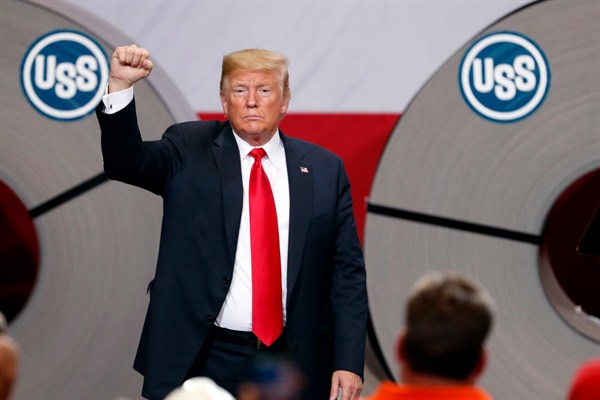How will President Donald Trump’s trade wars end, assuming they do? There are at least some hints now about how things may play out, and they are not reassuring. Administration officials keep saying that the tariffs imposed against China and other American trading partners, including close allies in Canada and the European Union, are being used as leverage to remove unfair trade practices abroad, improve market access for U.S. exporters and reduce the deficit. But it is looking more and more like the outcome could instead be continued trade protection in myriad forms.
One little noticed aspect of Trump’s trade policy is the revival of “managed trade” as a means to address “unfair” trade deficits. In addition to pressures on China and other countries to import more American natural gas, soybeans and other products, this revival is reflected in the return of “voluntary” export restraints, known as VERs, which were a common response to trade pressures in important sectors in the 1980s, including steel and automobiles. The pressures to increase American exports by unspecified means and at the expense of other trading partners are, at best, inconsistent with the spirit of the international rules-based trading system. Reviving the use of VERs, on the other hand, is a clear violation of the rules that the United States agreed to when it helped create the World Trade Organization in the mid-1990s. This is yet another in the long list of ways that the Trump administration is undermining the rule of law and multilateral institutions.
The most explicit manifestation of managed trade today are the VERs that allowed South Korea, Brazil and Argentina to avoid the new 25 percent tariffs on American steel imports. These countries gained permanent exemptions from those tariffs, imposed for purportedly national security reasons, by agreeing to limit their shipments of steel as follows: 70 percent of the average 2015-2017 levels for all South Korean and Brazilian finished steel, and 100 percent of that average for Brazilian semi-finished steel. Argentina, which had seen its steel exports drop in recent years, will be able to ship up to 135 percent of the 2015-2017 average volume of shipments to the United States. U.S. negotiators reportedly tried and failed to negotiate similar restraints with the European Union. There were reports that the Trump administration was also seeking unrelated concessions on the EU’s tariffs on foreign automobiles, but the EU resisted any deal that would not be consistent with WTO rules.

